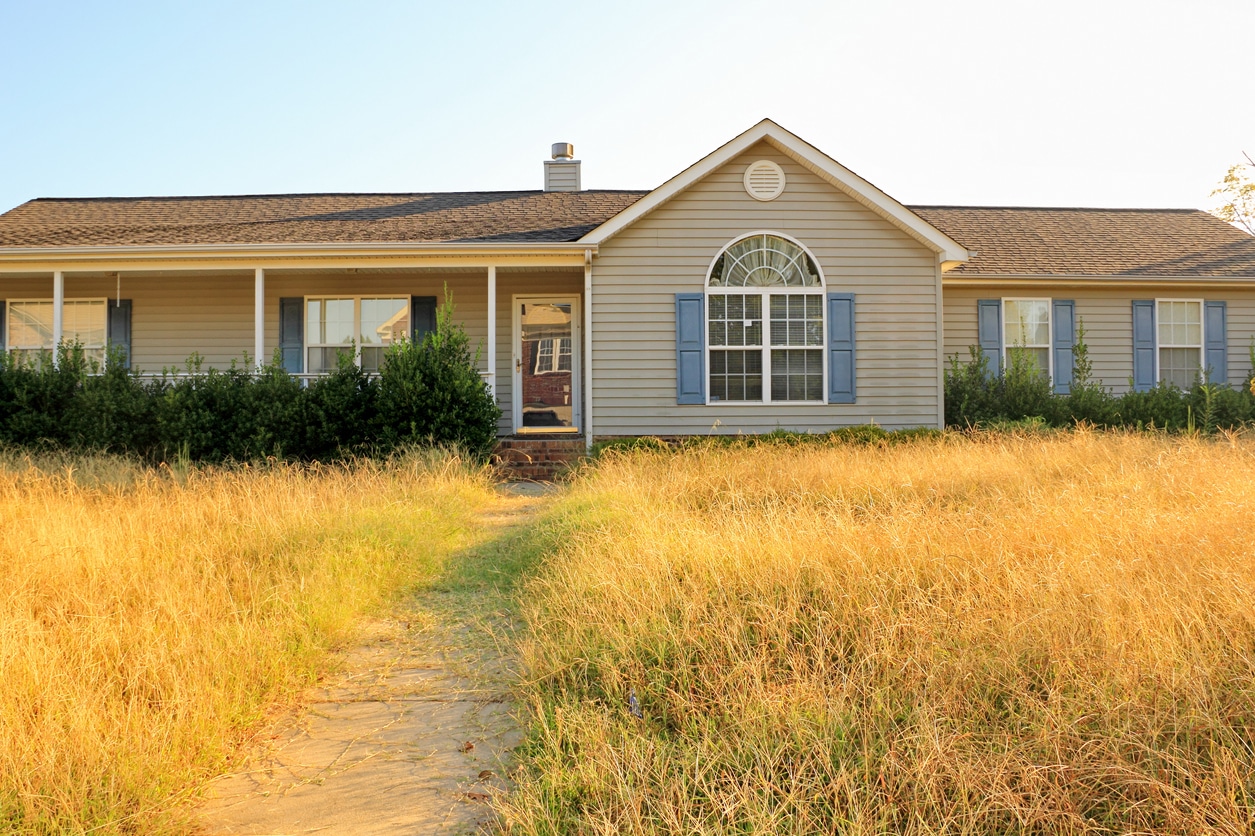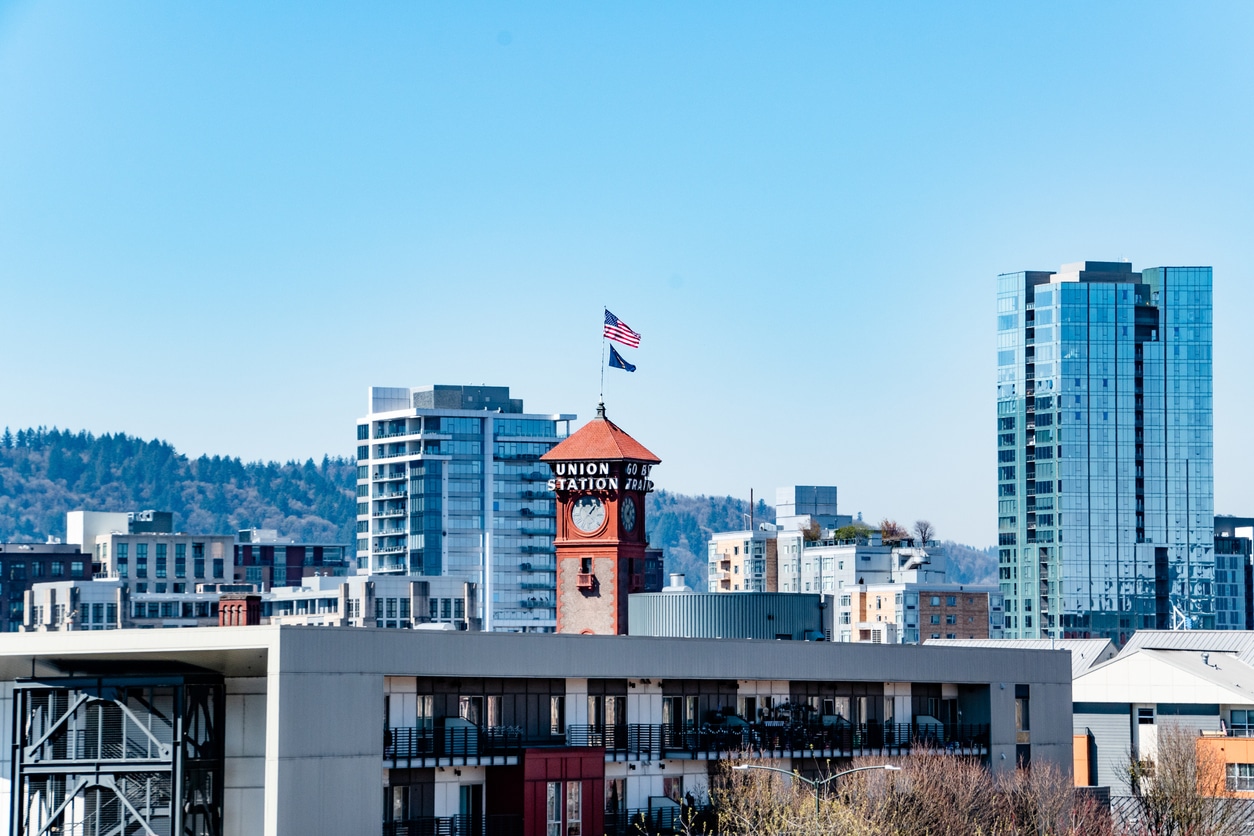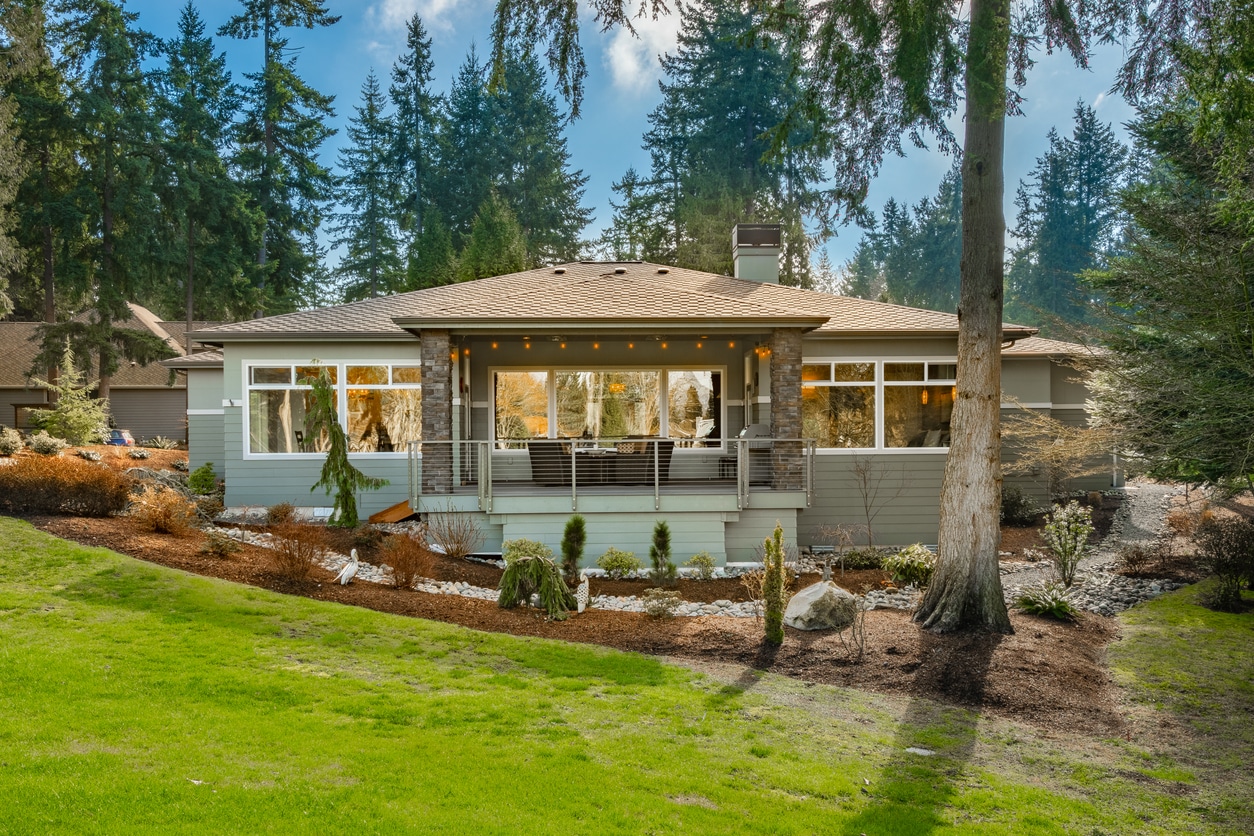Abandoned Homes in Portland: How to Report or Buy Them

Updated 08/2025
One of the best parts of being a Portland real estate agent is watching homes transfer to new and excited homeowners. It is also frustrating to see so many abandoned homes with no one enjoying them.
Every city has abandoned homes. When owners move on or refuse responsibility, banks and cities place liens against the property, in turn making it more difficult for owners to recover their property.
In Oregon, there hasn’t been a high rate of foreclosures since the real estate market recovered from the 2008 crash. Even the fallout from COVID-19 didn’t produce many foreclosures as then Governor Brown put in a moratorium that lasted until 2022 to stop them from happening.
Oregon typically experiences some of the lowest foreclosure numbers nationwide. As of the latest data from March 2024, Oregon ranks 46th in overall foreclosures. Still, with interest rates remaining on the high side since 2024, you may wonder if more foreclosures are on the way due to homeowners being unable to refinance or having rates that are adjustable. Regardless, the fact remains: no matter the market, there are always some foreclosures and abandoned homes, sometimes called derelict or zombie homes.
Here are some facts worth knowing about abandoned homes, including how to report and buy them to ensure they are used to their best potential.
Abandoned Homes Can Be Dangerous
An abandoned home can be more than just an eyesore in any neighborhood. It can pose a potential threat to local safety by increasing local crime through break-ins and squatters. The home could pose a chemical, fire, or flood risk to neighboring properties without proper oversight.
If you live in a neighborhood with an abandoned or neglected home, you can take steps to help the city intervene with due process and take care of the situation. Here’s how.
How to Report a Derelict, Abandoned Home in Portland
For any of the following issues, contact the Property Compliance Help Line Development Services at codec@portlandoregon.gov / 503-823-2633, Monday through Friday from 8 am – 4 pm. Leave a message with detailed information.
- Safety issues—collapsing retaining walls or buildings
- Residential structure maintenance—peeling paint, leaking roof
- Illegal occupants
- Empty structure open to entry
- Trash or other debris on a property’s exterior
- Tall weeds or grass
- Vegetation blocking the right of way
- Mosquito larvae or pupae in standing water
If you see graffiti on a vacant structure, call the Office of Neighborhood Involvement at 503-823-4824.
Four Ways to Purchase a Foreclosure or Abandoned Portland Home
Issues aside, purchasing a foreclosed home can be an option when budgets are tight or you want to renovate and turn around a profit. There are four ways to buy a foreclosed or abandoned home in Portland.
1. Search for Portland Real Estate Market Foreclosure Listings
The first and easiest way to buy a foreclosed home in the Portland metro area is to search for all foreclosed homes for sale listed by banks on the public market. Check this link to the full map of all Portland homes for sale. Once on the map, click on the “More Filters” button, skip down to the “Property Amenities” section, and under the “Financial Options” section, click the “Foreclosures” checkbox. You won’t see many available. If you don’t see any, the website is not broken, they are pretty rare overall, just expand your geo-target to a bigger area until you find one.
2. Purchase Through Sheriff or Portland Courthouse Foreclosures
The second way to buy a foreclosed home is through an Oregon Sheriff Sale. Find all the upcoming listed Oregon Sheriff Foreclosures for Sale here.
This type of sale is not as easy as the public market sale. A buyer bids for the property, sight unseen, usually because there is no access to the property. Also, all sales are cash and final, as-is, with no inspection contingencies. The buyer must also be present in the courthouse with cash or a cashier’s check on hand to bid on the property.
Another issue is that the sale is not guaranteed. A complication to Sheriff or Courthouse Steps foreclosure sales is the “right of redemption,” which means that if the previous owner pays the money owed within a set timeframe, the buyer will lose the sale. This applies to this type of foreclosure sale and not public market foreclosure sales.
The redemption period was recently shortened in Portland. In 2024, the Portland City Council shortened the home owners redemption period from one year to three months. They made this change because many foreclosed homes using this method were not selling. The change helps reduce the risk for foreclosure purchasers. Here is a snippet from the passed ordinance:
The one year redemption period is a deterrent for potential buyers at the auction, due to the fact that the successful bidder has an investment in a property, which is not truly owned until the end of the redemption period. As a result, the successful purchaser is reluctant to remedy the property ailments and incurring additional costs which may not be entirely refunded by the redemption price.
3. Write a letter to purchase an abandoned Portland home
This strategy works more often than you’d think! I’ve been selling homes in Portland since 2003, and we’ve helped numerous buyers write letters to the owners of abandoned homes (we can often find their alternative mailing address), offering to purchase their derelict home. We’ve helped make this connection many times, turning abandoned homes around with excited home buyers.
4. Opt for False Foreclosures, or Pre-foreclosure Homes Listed for Sale
False foreclosures or pre-foreclosure homes are not another type of foreclosure for purchase and, in fact, seldom result in new sales, but they are worth mentioning. These occur when a homeowner misses a few mortgage payments and the address is automatically added to a national database of pre-foreclosure properties. Real estate websites buy that list and put it on their public website for sale. However, 99% of these homes will never go to foreclosure because the owners catch up on arrears. So, be aware that putting in effort on pre-foreclosure searches is generally a waste of time.
Portland, Oregon Real Estate Market Foreclosure Rates
The Portland foreclosure chart below lists all RMLS (public multiple listing service) detached residential foreclosure home sales in Portland, Oregon (city proper) in recent years.
| Year | Sold All | Foreclosures Sold | Foreclosure Rate |
| 2022 | 8846 | 13 | 0.001% |
| 2021 | 11,174 | 22 | 0.001% |
| 2020 | 9759 | 53 | 0.5% |
| 2019 | 9178 | 85 | 0.9% |
| 2018 | 9297 | 112 | 1.2% |
| 2017 | 9975 | 190 | 1.9% |
| 2016 | 10,039 | 339 | 3.3% |
| 2015 | 10,571 | 391 | 3.6% |
| 2014 | 9328 | 327 | 3.5% |
| 2013 | 9275 | 358 | 3.8% |
| 2012 | 8220 | 968 | 11.7% |
| 2011 | 6704 | 1222 | 18.2% |
| 2010 | 6595 | 1019 | 15.4% |
| 2009 | 6707 | 865 | 12.8% |
| 2008 | 6561 | 2 | 0.001% |
Forecasting Portland Real Estate Foreclosures
To forecast upcoming Portland foreclosure rates, we can look at the current mortgage forbearance rate, which occurs when a lender allows a homeowner to reduce or pause their payments for a limited time. Many homes that go into forbearance bounce back, but the higher the national forbearance rate, the higher the following year’s foreclosure rate will likely be.
The national mortgage forbearance rate is currently less than 1% (April, 2025). Based on this, we can expect that the 2025 Portland foreclosure rate will remain low, less than 1%. Foreclosures take a long time to process, and can be based on prior forbearance rates.
Forbearance Rate Recent History
Back in 2021, the rate was nearly 4% and dropped again in 2022. For a moment during COVID-19, it passed double digits and then quickly went back down. But since then, the rates have been far less volatile. The process to move a home to foreclosure is lengthy, generally six months to three years from the time the homeowner stops paying. Most homeowners in forbearance will not end up as foreclosures.
How to Find a Deal when Searching for Investment Properties
If buying a foreclosed home interests you, here are a few ways to get things moving:
- Keep an eye out for current public market foreclosures for sale.
- Sheriff’s sales can be very risky due to the home’s “as-is” nature and buying sight unseen, as well as any potential hidden costs. As mentioned before, the home could go back to the owner if the debts are paid. There is also the possibility of occupants remaining in the home until the home is sold or debts are cleared. Still, with that risk comes a decent investment opportunity.
- Look for short sales for sale.
How Does the City of Portland Deal with Abandoned Homes?
Historically, the best information I was able to find was based on a summit Portland held in 2010. At the time there was an ongoing crisis of abandoned homes. To help address the problems associated of squatting, vandalism, and structural deterioration inherent in abandoned homes, the Portland Office of Neighborhood Involvement (ONI) and the Portland Police Bureau (PPB) focused their efforts on these issues.
Attorneys, bank loss mitigation professionals, insurance agents, real estate brokers, and the city’s code compliance officer met at the summit. They created a plan to address Portland’s abandoned homes situation and the following steps to remedy them. Since 2010, abandoned homes haven’t been as much of a big issue in the city.
Abandoned Home Problems in Portland
The problems that arise from abandoned homes can be many, and they oftentimes overlap each other, creating a web of issues for local residents and authorities. Examples include:
- Squatting in the home and/or camping in the yard, and accompanying bodily wastes that leads to health concerns
- Looting, including plumbing and electrical wire, which leads to safety concerns
- Break-ins out of curiosity by children and young adults, and other crime
- Fire hazards when the building falls into disrepair
- The location becomes an eyesore due to broken windows, graffiti, and overgrown vegetation
Challenges Faced when Dealing with Abandoned Homes
Just as the problems with abandoned homes are complex, so is finding remedies to foreclose on the property and move it toward some kind of renovation or upkeep by a responsible owner. The top two are:
- Establishing ownership. In many cases, the owner (person with the loan) has abandoned the home, but the loan holder (lender) has not yet claimed property rights, leaving the home in a kind of legal limbo.
- Home seizure time. It can take more than a year to get through the process, so the city can seize the home because even lenders are unable to fully cooperate due to a backlog of properties.
Using Lenders for Abandoned or Foreclosed Homes
If you are considering an abandoned or foreclosed home and hope to secure a mortgage for one, here are a few things to keep in mind:
Auction homes: As mentioned earlier, homes sold at auction are cash sales. Traditional lenders won’t assist with these types of purchases. Auctioned homes are sold “as-is”, whereas a mortgage lender typically requires inspections and appraisals before approving funds. Also, auctioned homes require immediate payment, whereas lenders usually take 30-45 days to close.
Bank-Owned Homes or REO (Real Estate Owned) Properties: If the property is owned by the bank and is listed for sale in the public MLS, generally, you can secure a mortgage for it. The bank will have typically brought the property up to at least a financeable condition, prior to placing it for sale on the public market.
What If You Have Experienced a Foreclosure?
Note that if you have previously had a foreclosure of your own and are now looking to secure a mortgage for a new property, you may have more difficulty secure one with a low rate – especially if your foreclosure was recent and/or your credit score has been impacted. A foreclosed home will stay on your credit report for seven years starting from the date of the first missed payment, called the date of first delinquency (DOFD). You may also undergo waiting periods before qualifying for a new loan. A previous FHA loan has a waiting period of 3 years, and conventional loans may take longer, such as 5 or 7 years.
A significant factor in any acceptance is your financial situation at the time of the loan request.
Note for Those Facing Foreclosure
As opb.org cautions, if you are a homeowner in a position to potentially face foreclosure, be aware of scams if you receive calls offering assistance. Be sure to only work with certified housing counselors. See the list of certified housing counselors in Oregon. Keep in mind that short-selling your home can be a better alternative to foreclosure (depending on your particular situation).
Work with a Real Estate Expert
Our top 1% team has been advising Portlanders on their real estate goals since 2003. Whether you are a home seller or home buyer our top 1% buyers agents and top 1% sellers agents are ready to help. Give us a call today at 503-714-1111 or chat with our bot on this site. We’d love to connect!


